ATOS 2024: participatory art projects from Lamego to Loulé
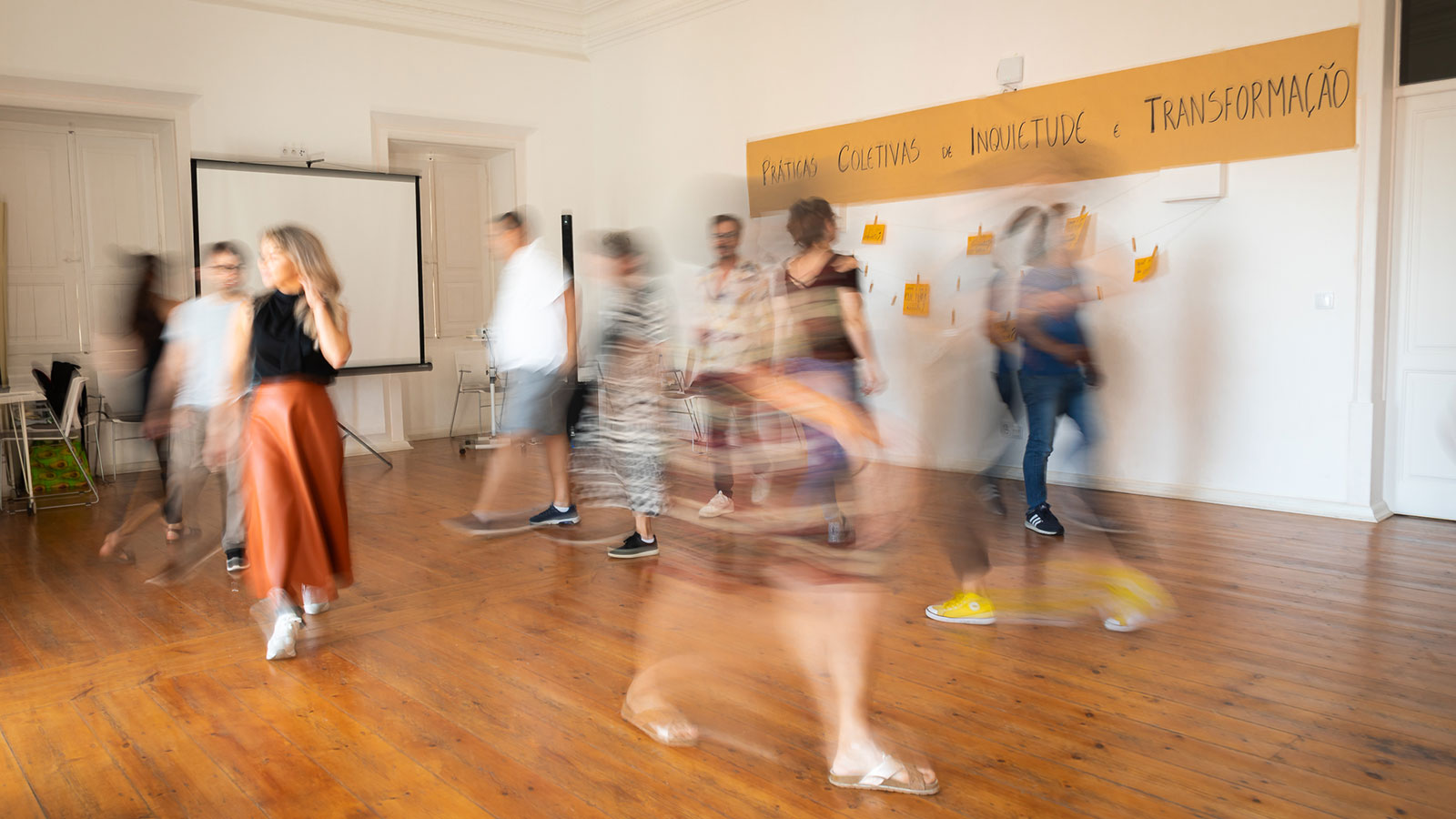
This year, the Atos programme builds on the lessons learnt in 2023, promoting participatory art as an engine for civic transformation. With a calendar full of activities, including artistic projects, forums, a training programme, a conference, a documentary and a publication, this joint initiative between the D. Maria II National Theatre and the Calouste Gulbenkian Foundation aims to promote participation among communities in various regions of the country.
Since April, six artistic organisations – Gira Sol Azul, Burilar, PELE, Coletivo Espaço Invisível, Discos de Platão and ondamarela – have been developing projects in places like São João da Madeira, Lamego, Loulé, Funchal, Ponta Delgada and Évora, with the aim of encouraging artistic participation and strengthening cultural democracy. In this article, we report on the activities carried out in three of these territories.
Encouraging community participation in Lamego
In Lamego, the Burilar collective began implementing its project in April, with initiatives designed to map and gauge the interests of the community. Among the activities already carried out are interviews with 30 people aged between 8 and 82, living in the centre and in the surrounding areas of Lamego, about their relationship with cultural practices in the town: what is culture? Is there something for me in the theatre? What is the Ribeiro Conceição Theatre for?
The archive of testimonies gave way to the installation ‘We lack your opinion’, exhibited in the town’s theatre square during the months of June and July, to give visibility to the people’s thoughts on cultural activities in the municipality.
Thirdly, the collective organised a ‘game-auscultation’ at the Municipal Market, using a tasting menu with products from the market to ask the people of Lamego about culture, art, territory, participation and citizenship. At the same time, meetings were organised with local artists and the team from the municipality’s Culture Division and the Ribeiro Conceição Theatre, to share ideas and work out the next steps.
It was also in this city that the first Atos forum was held, bringing together 31 participants at the Lamego Civic Centre to reflect on the challenges and desires for cultural democracy, considering hypotheses and rehearsing solutions such as the implementation of mediation tools for artistic objects in schools; open-door visits to associations; inter-associative collaborations; adapting programming schedules to the population’s lifestyle; among others.
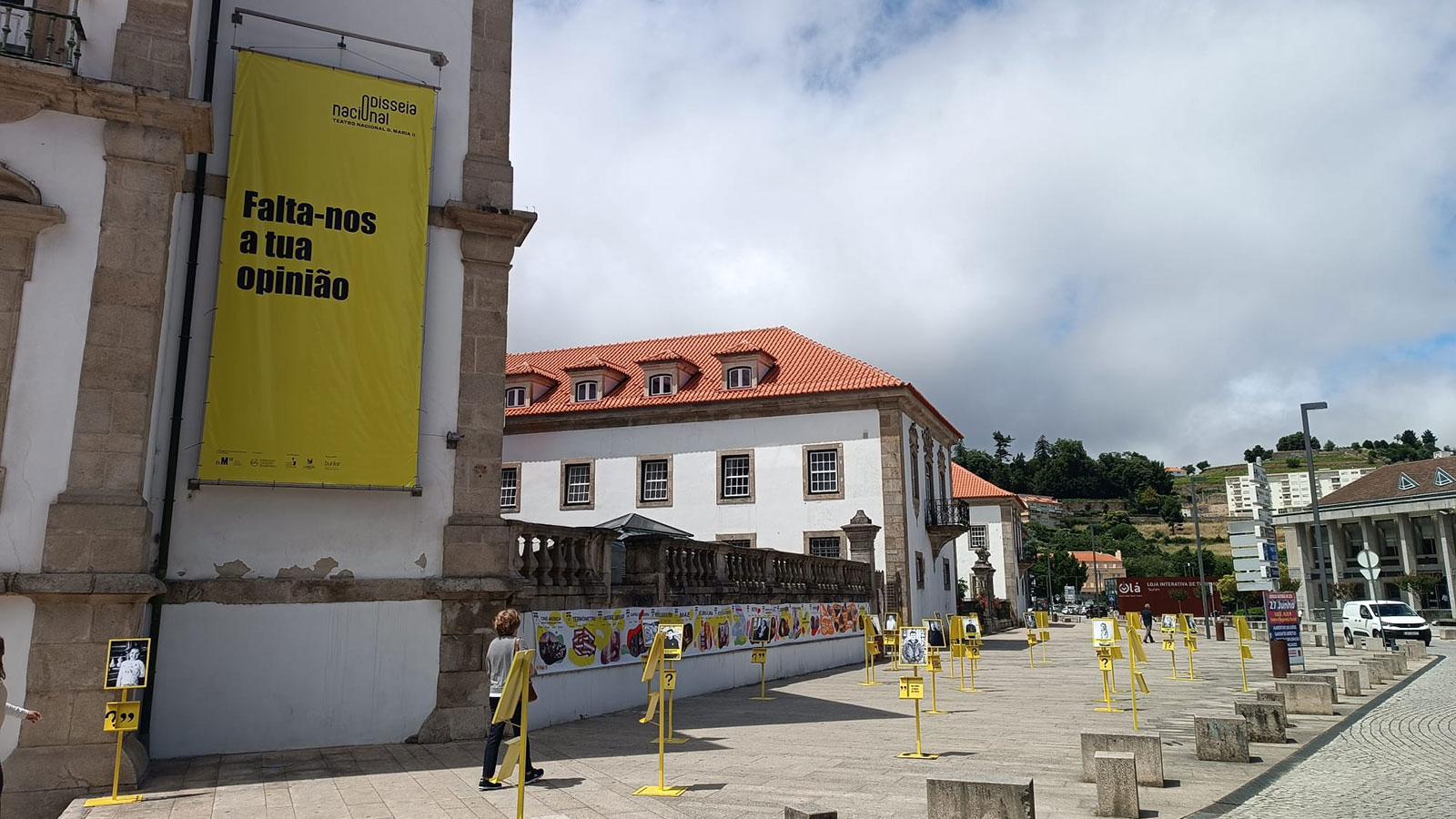
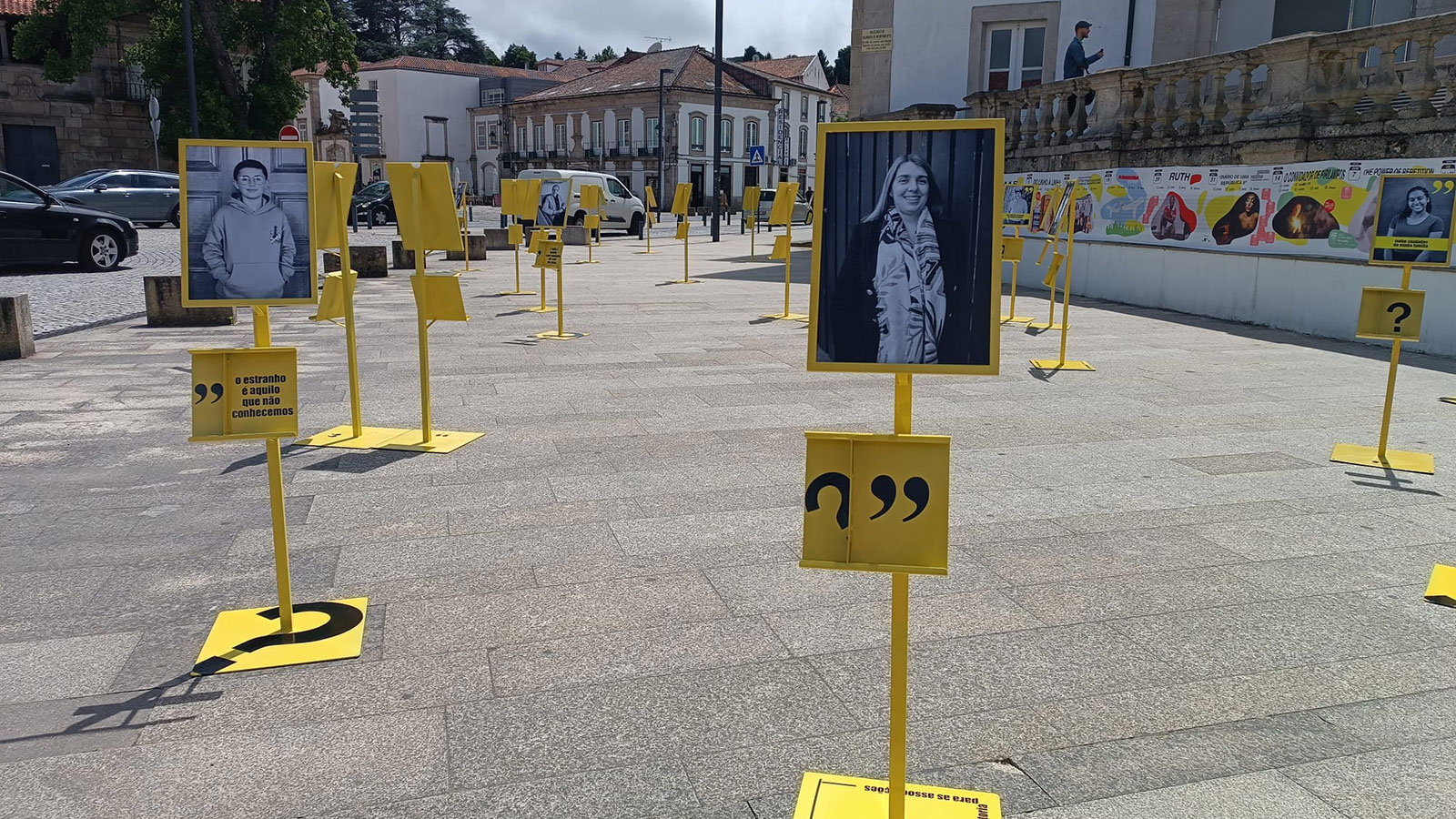
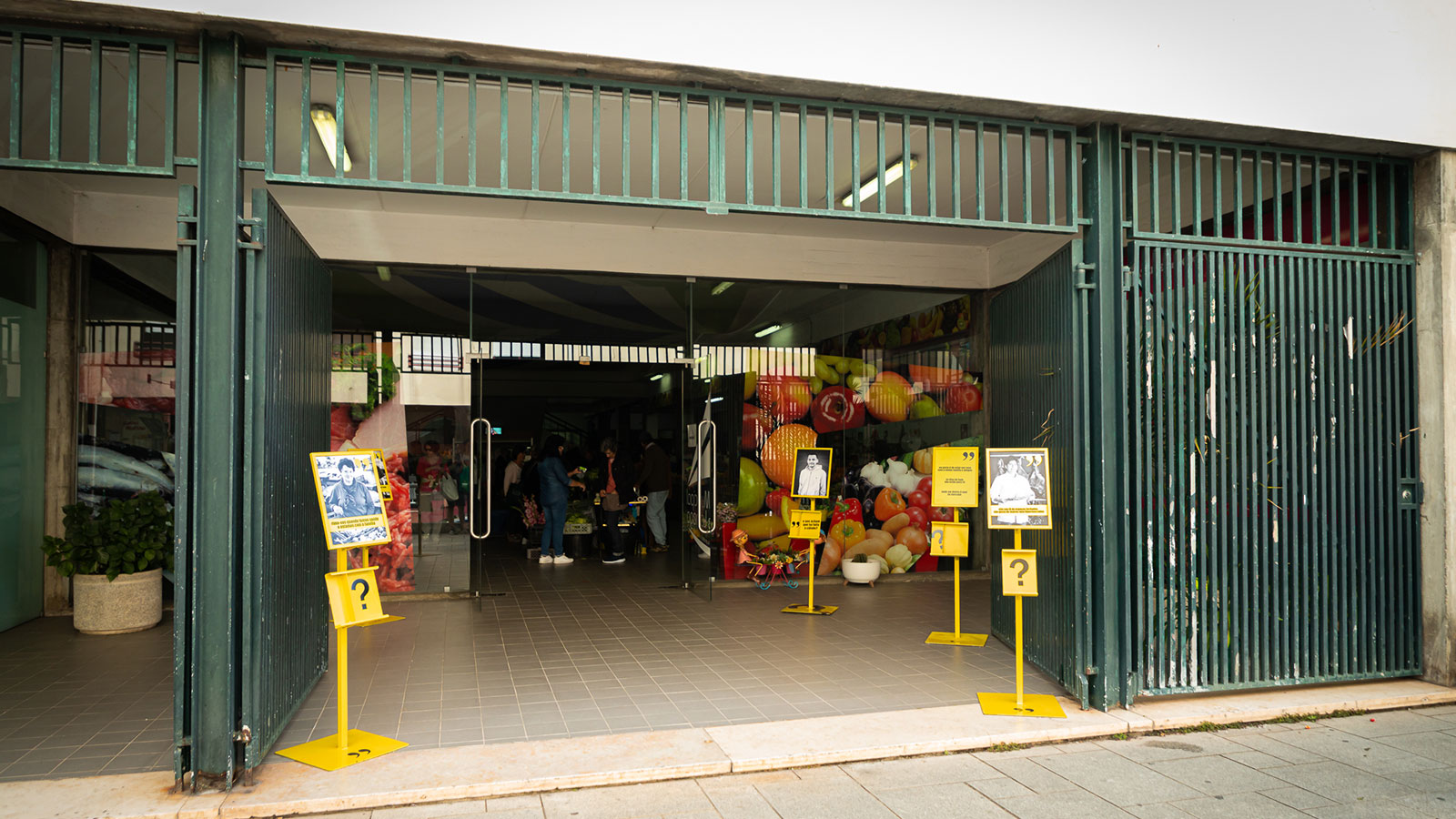
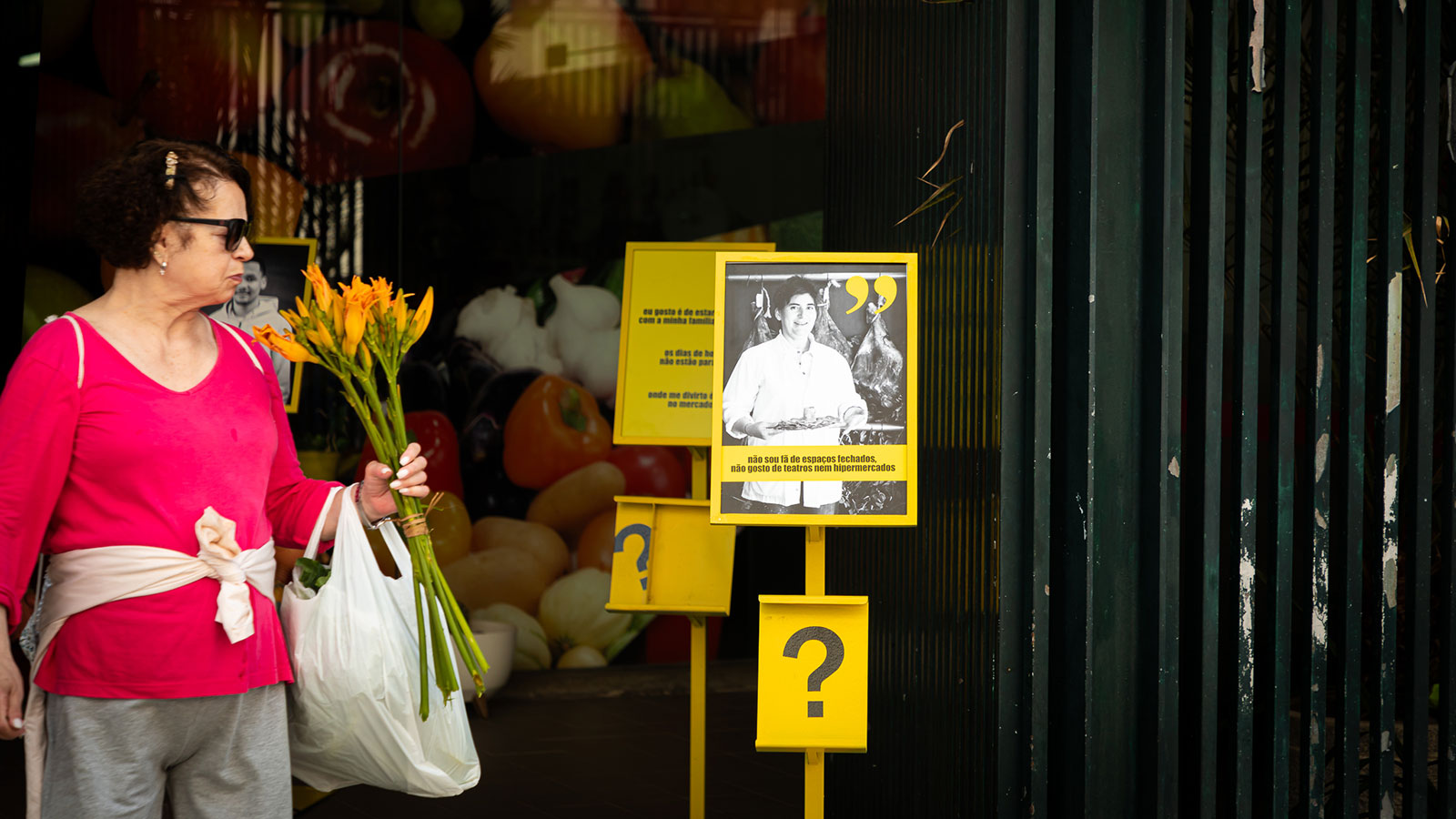
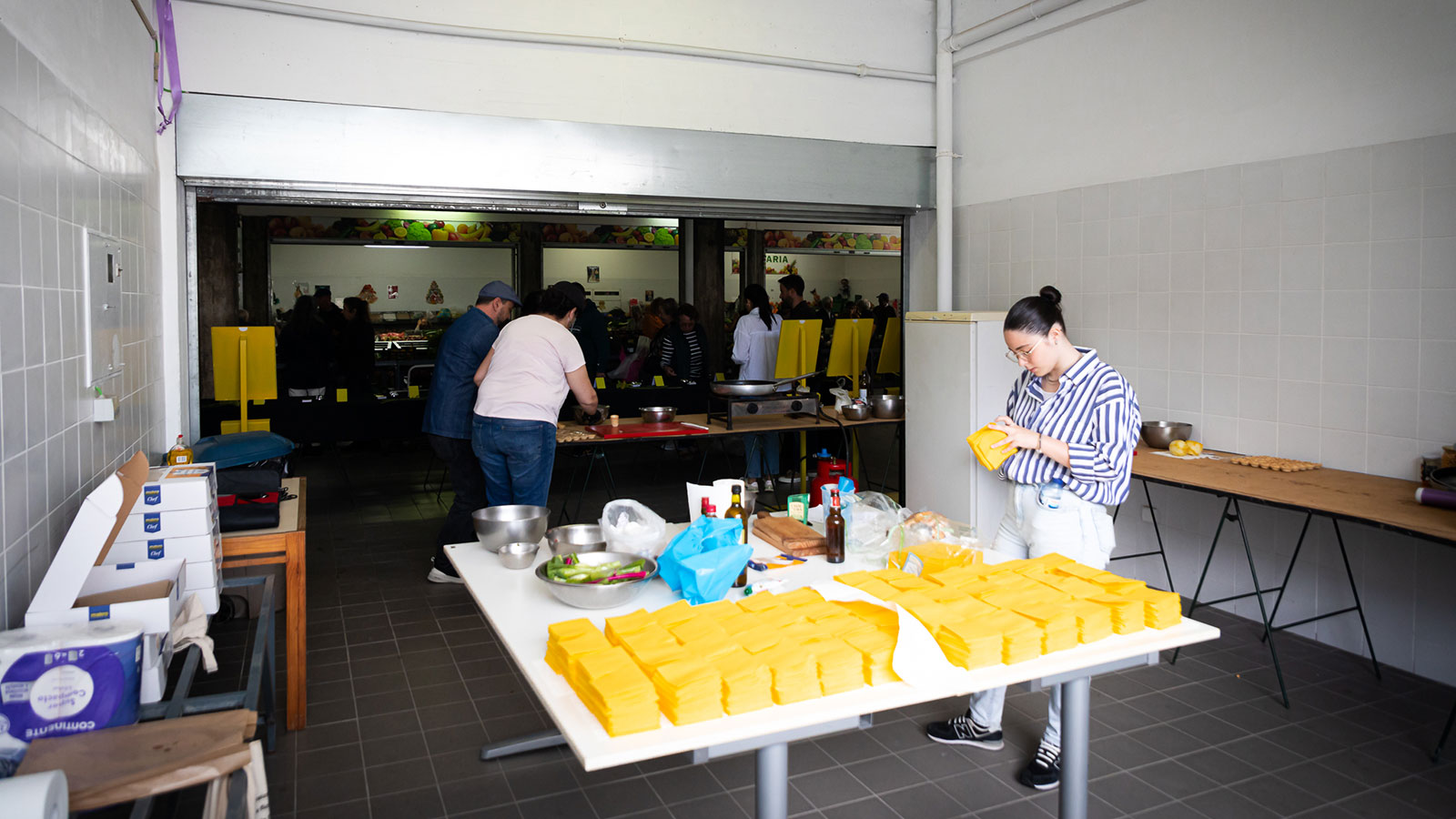
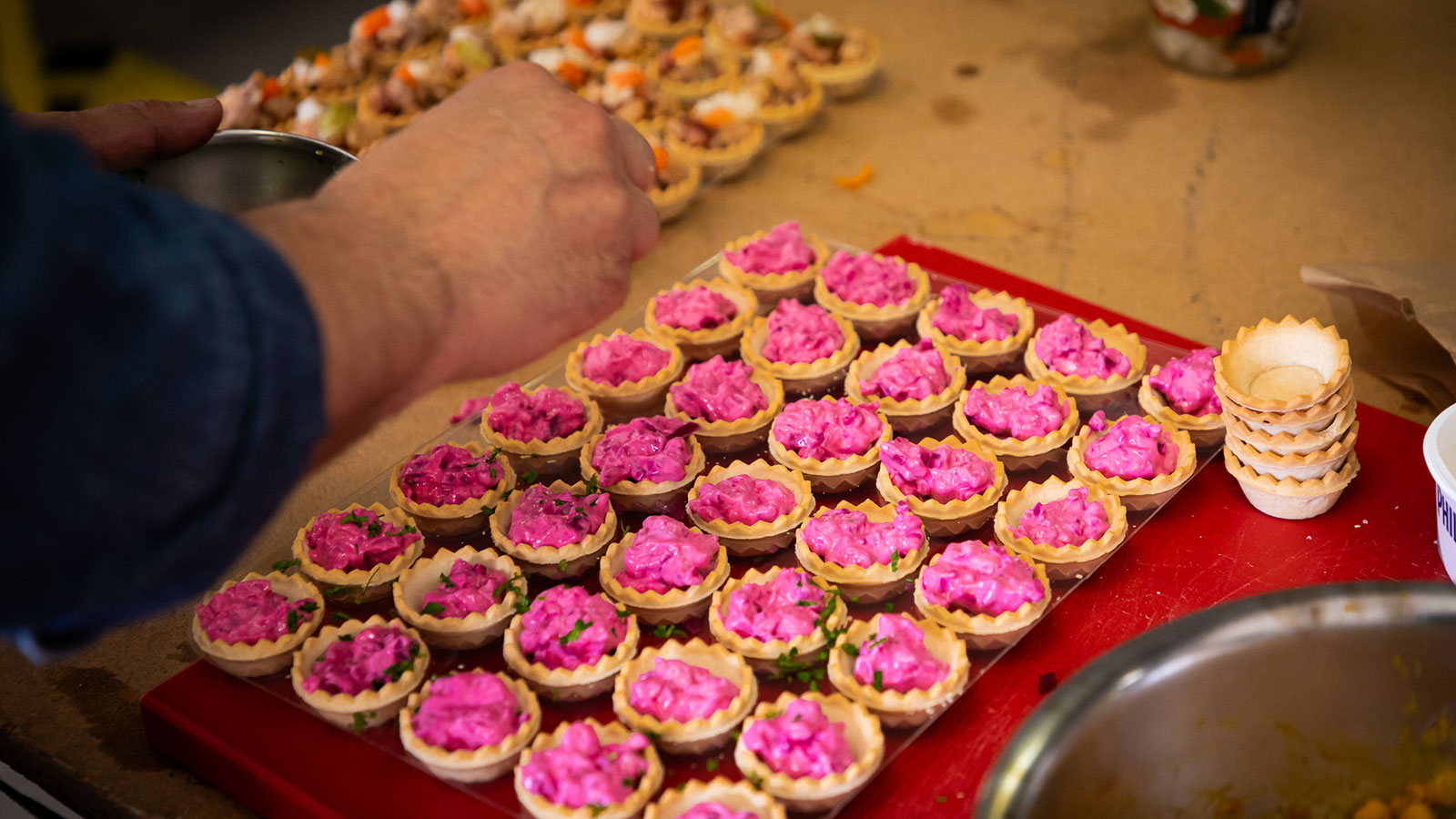
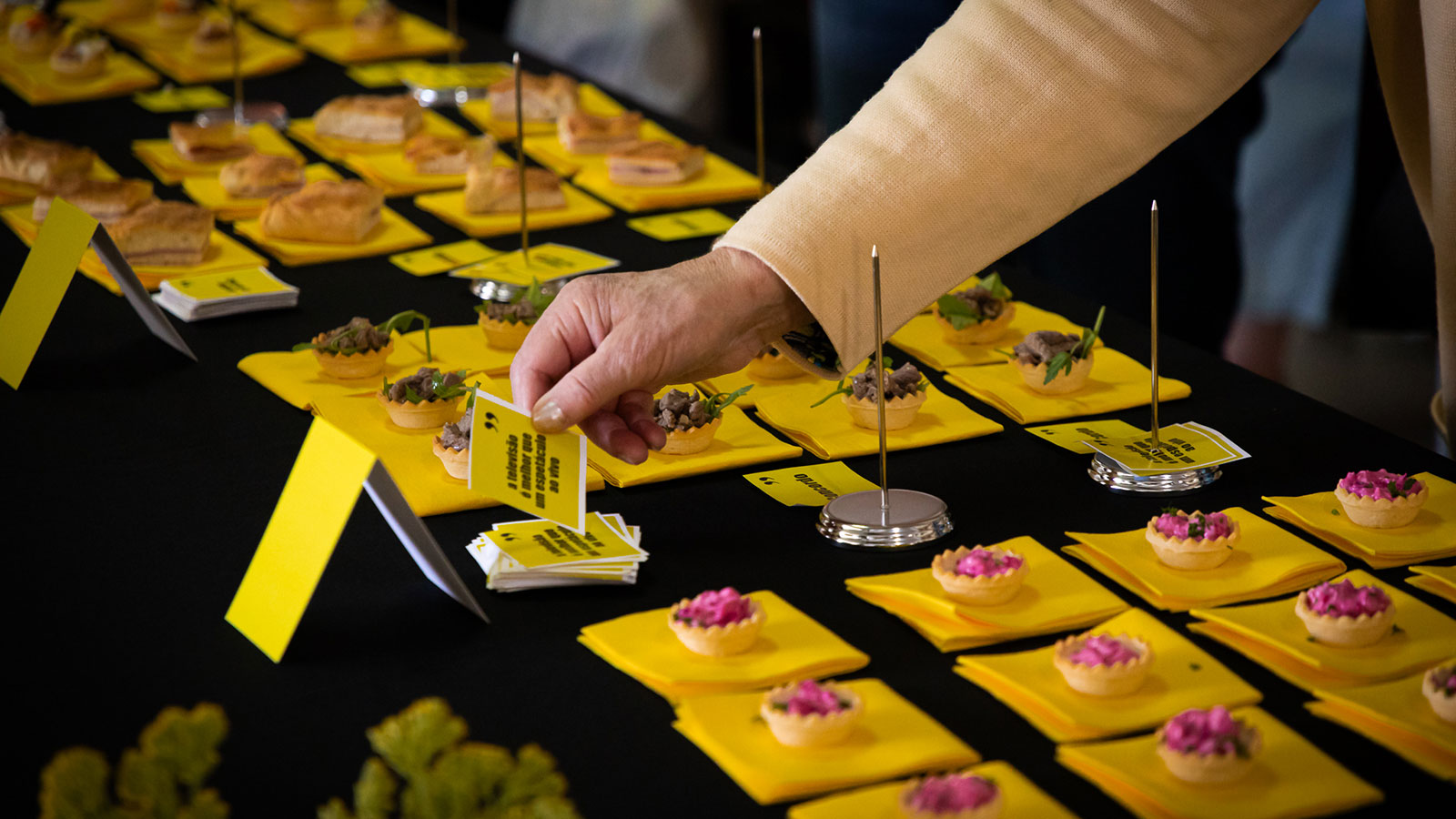
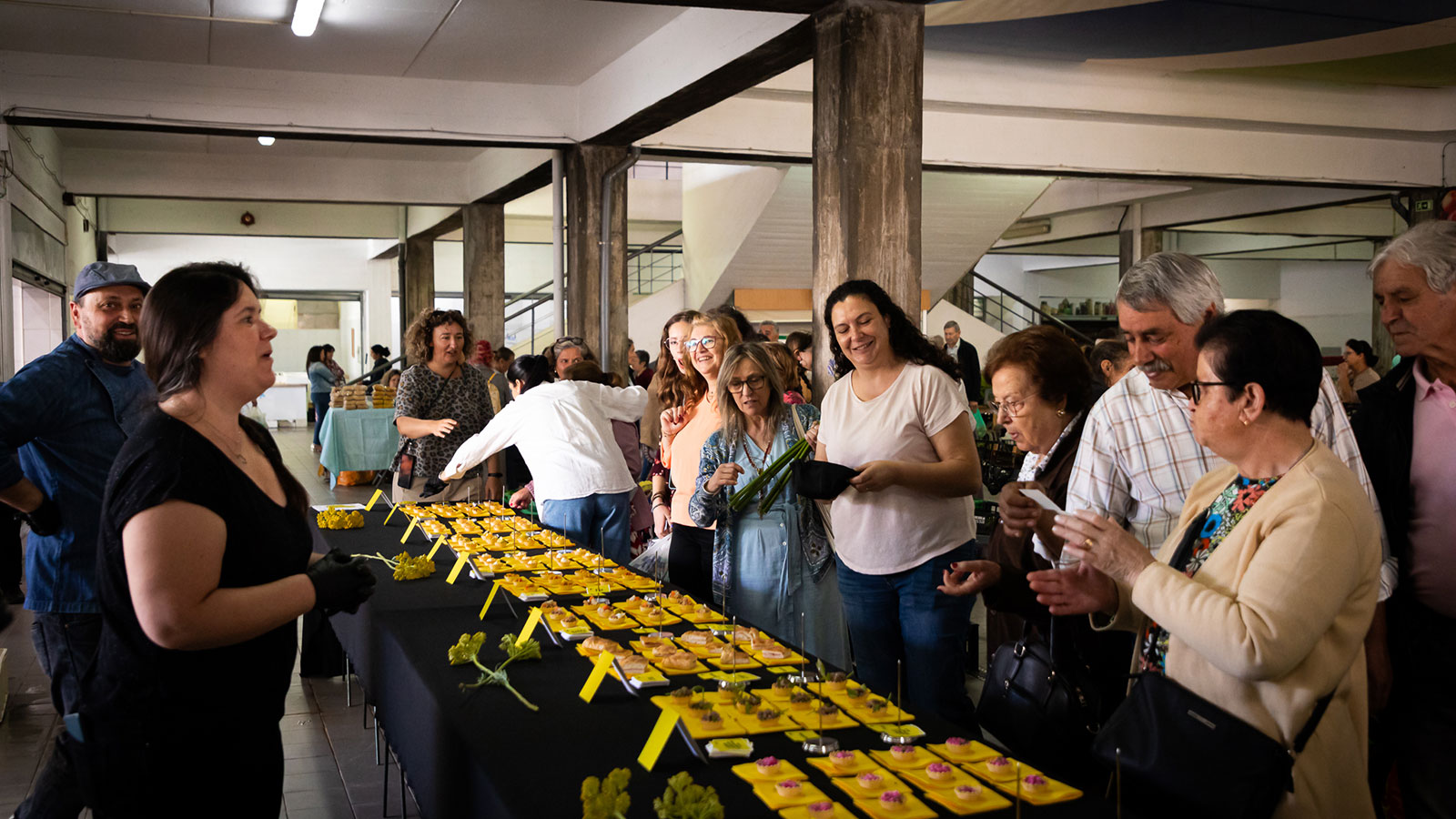
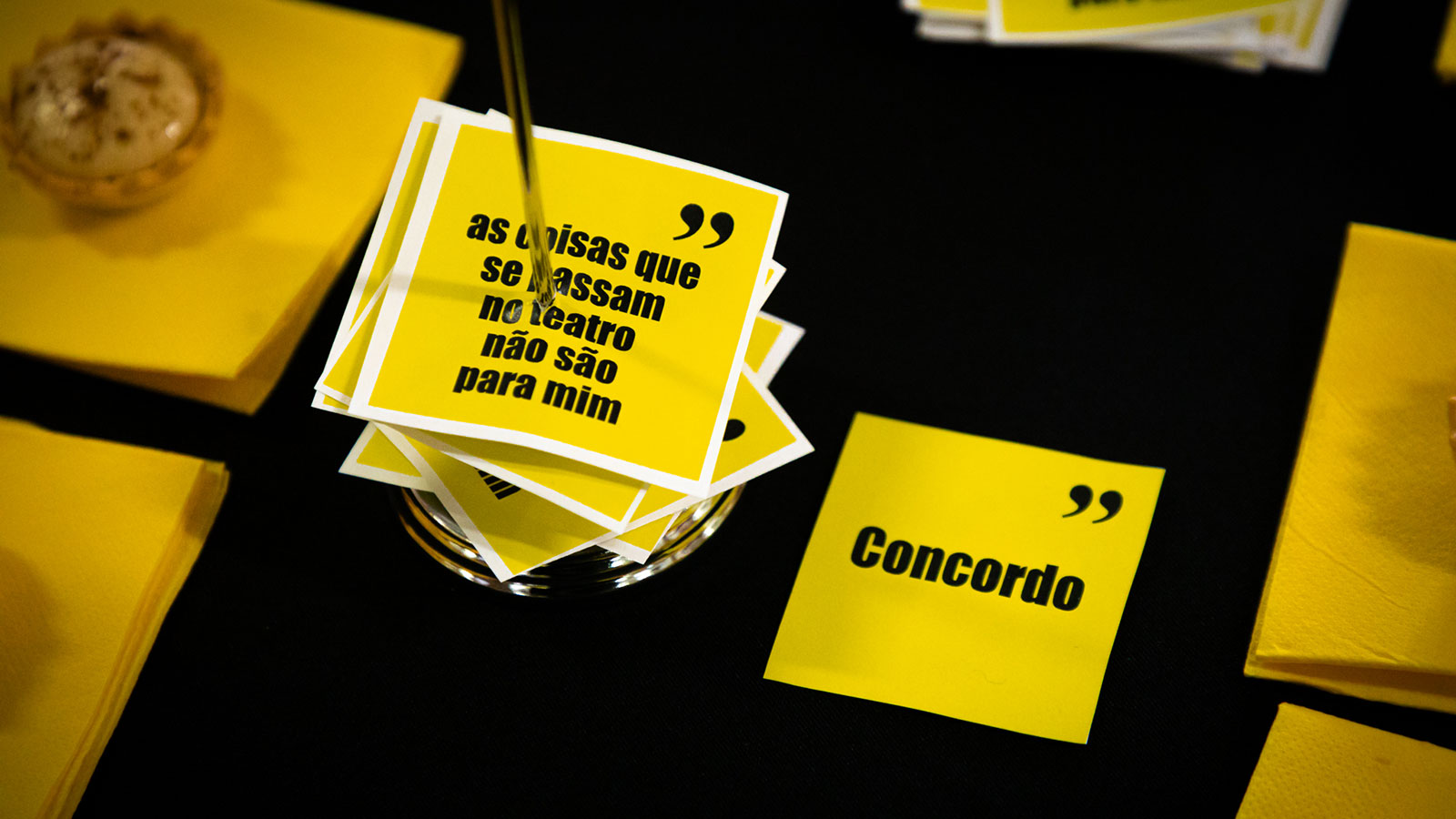
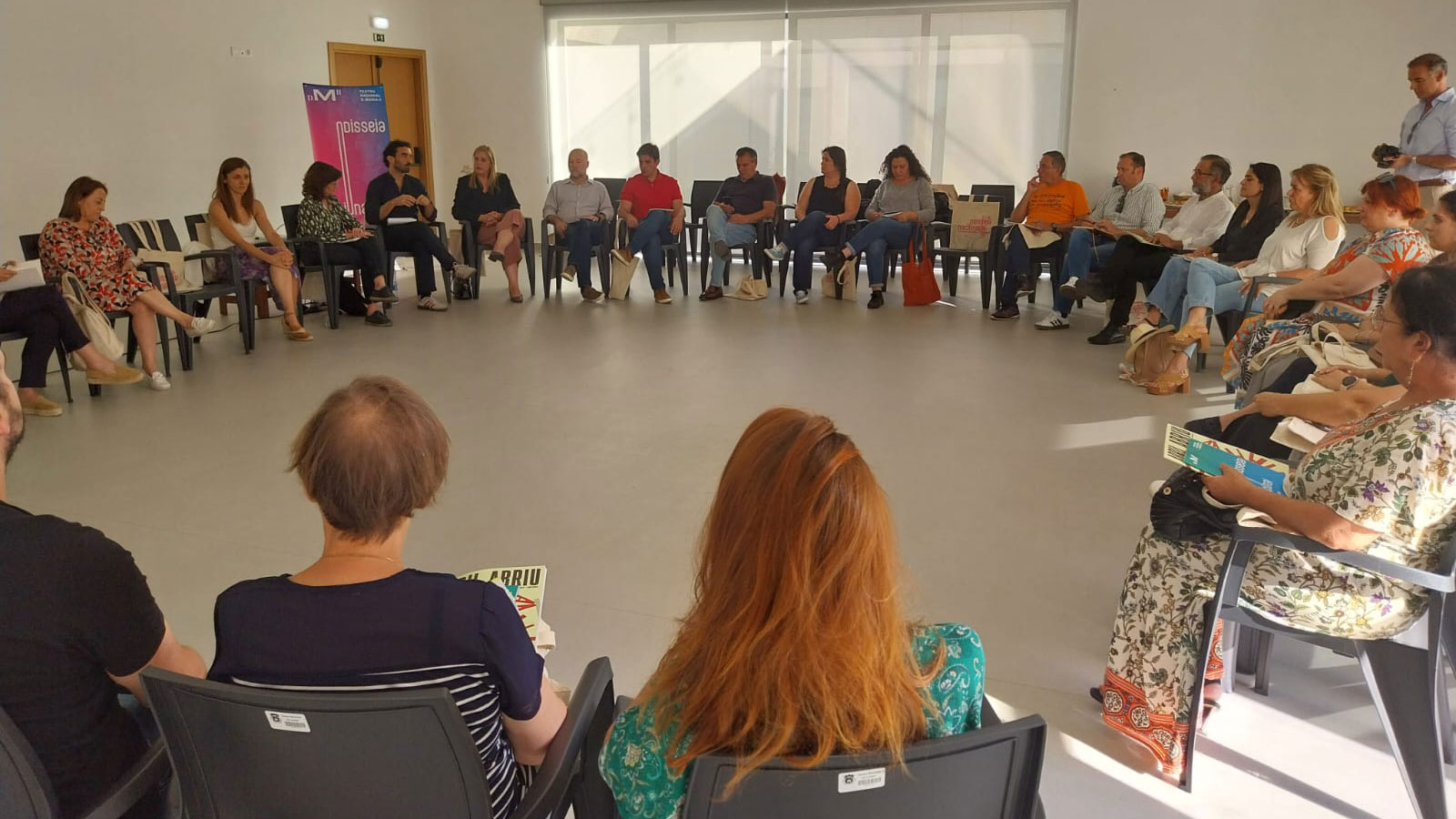
Reconnecting communities in São João da Madeira
In São João da Madeira, Gira Sol Azul is working until November to reconnect people and places through culture and art, with an interassociative and intergenerational project. In partnership with Casa da Criatividade, it will develop a podcast with different topics, seeking to promote local cultural action and create a forum that reflects the many voices within the community.
Since April, the association has been developing collaborative experiences and games to reflect on local cultural practices. From May to July, there were five fortnightly sessions called ‘Ao Encontro’, which brought together various cultural agents and citizens of the municipality in theatre games. Meetings were also held with some groups to develop more personalised work, including the music group Arte do Som, Viarco, the Centro de Arte Oliva and the newspaper O Regional.
The Atos forum in São João da Madeira brought together 41 participants to discuss culture and democracy, including representatives of the city council, local associations, industries and institutions, artists, members of the regional press and other citizens of the municipality. The conclusions emphasised the importance of encouraging cultural production and promoting policies that stimulate diversity and intergenerationality in artistic practices. The next forum will address the impact of the Atos programme in the municipality and the future of participatory artistic practices in the territory.
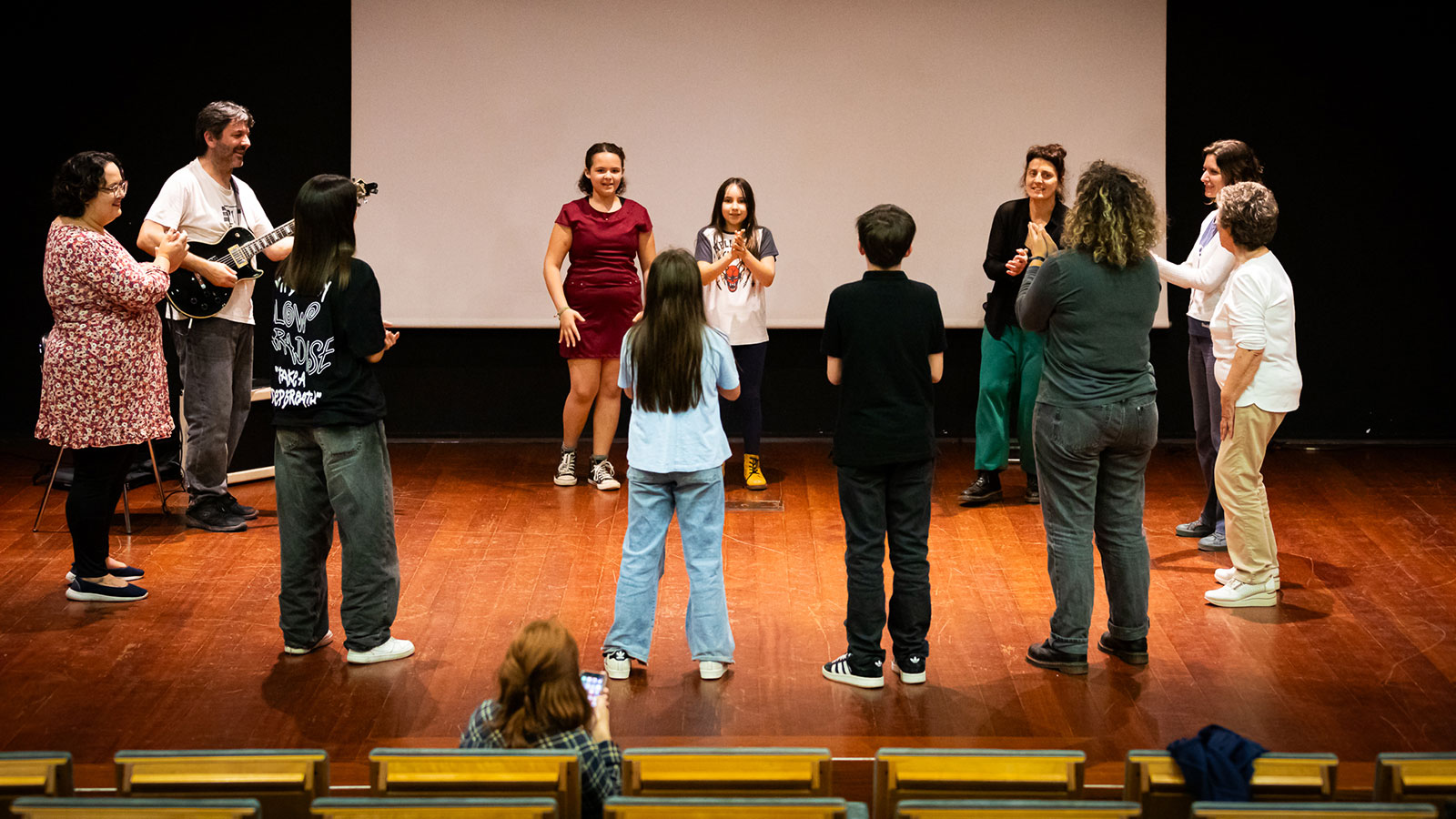
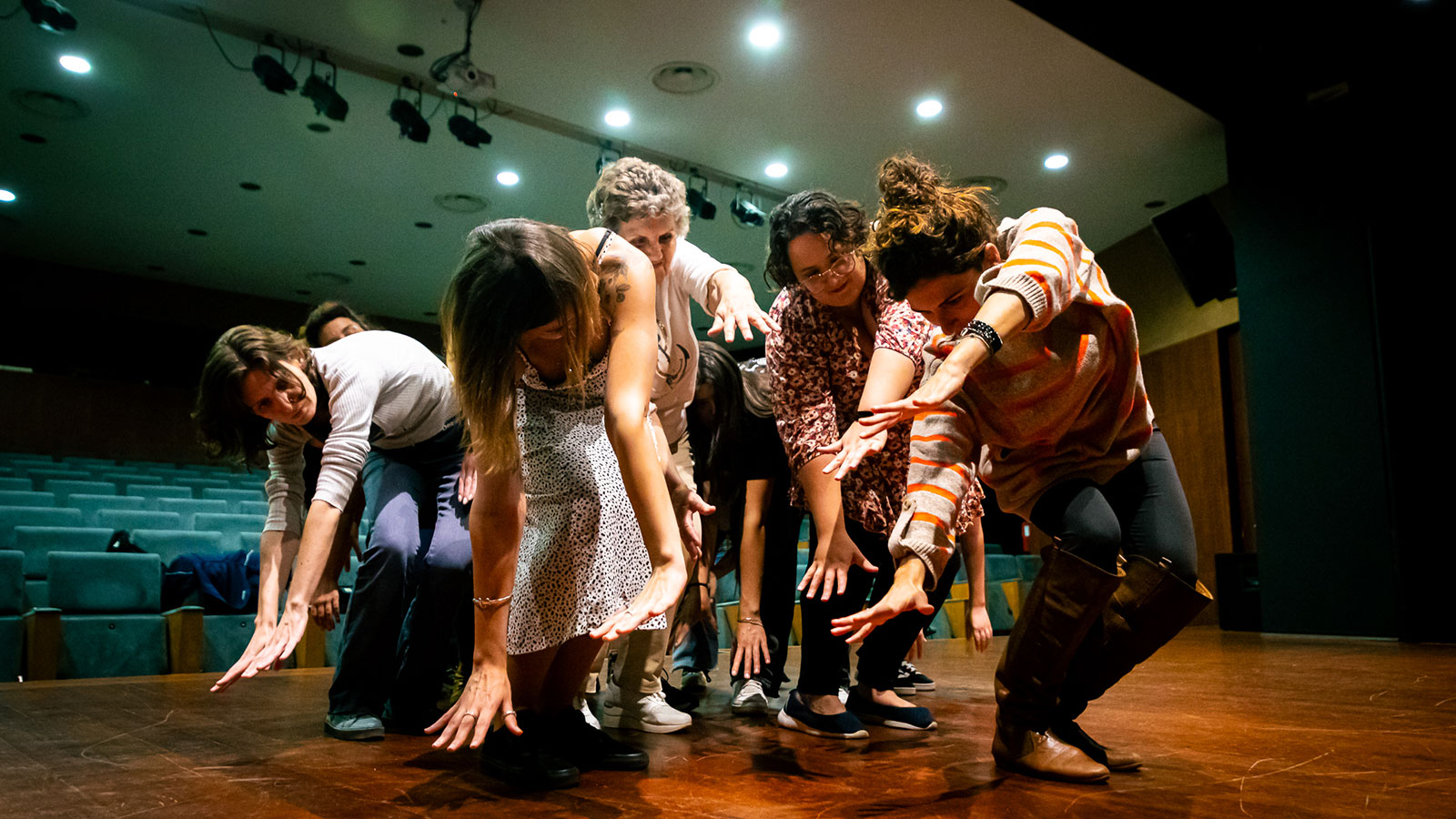
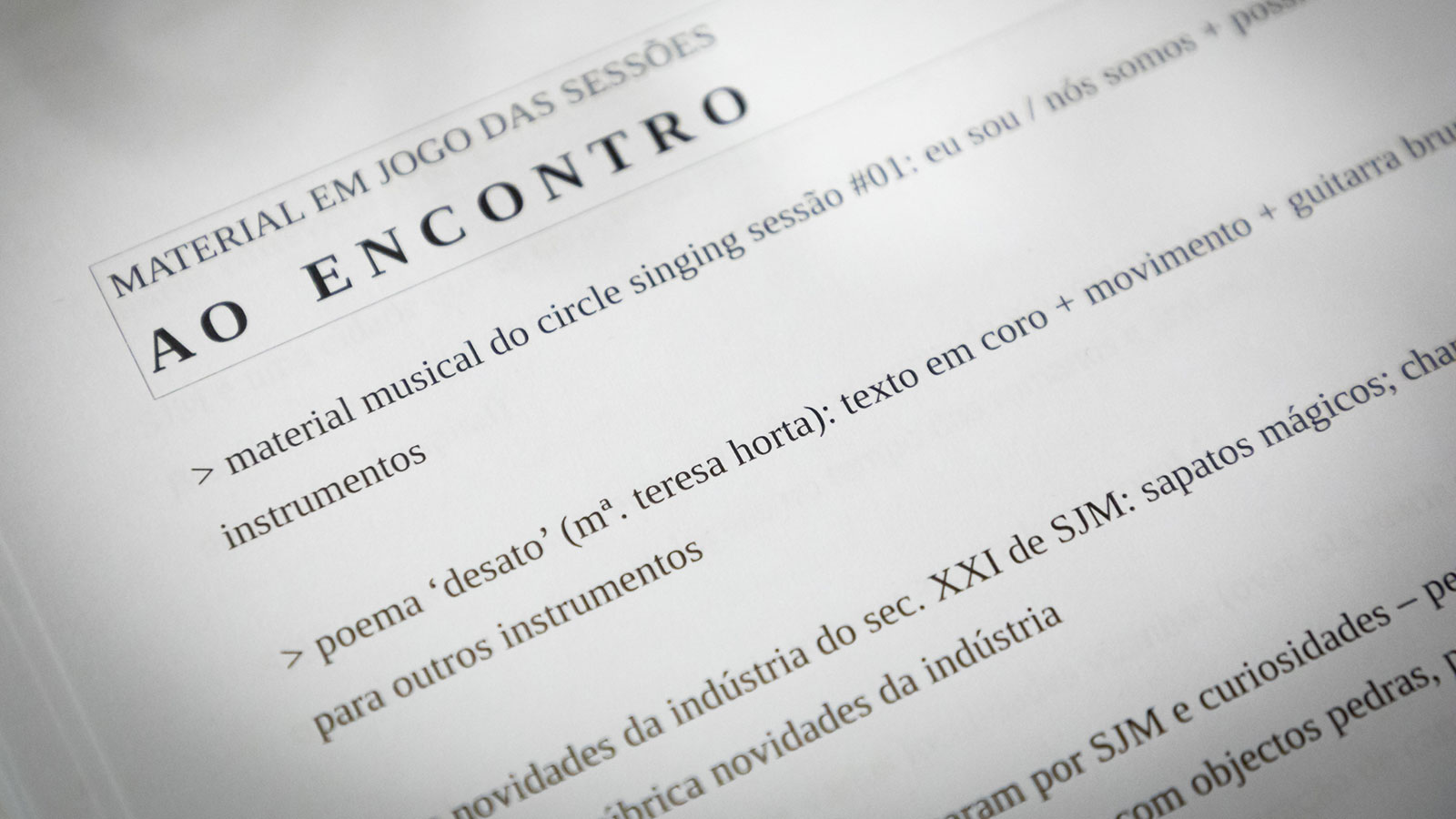
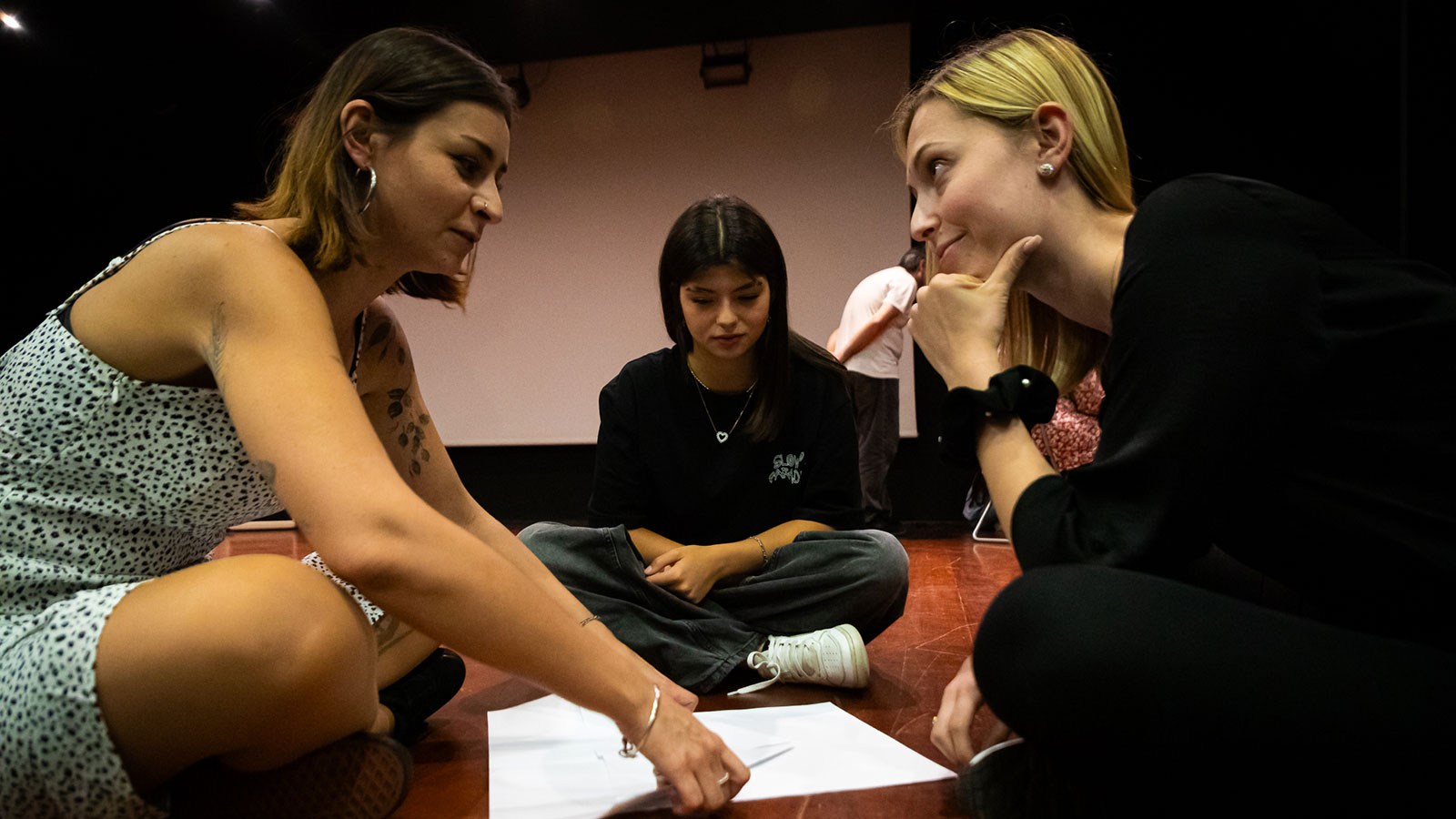
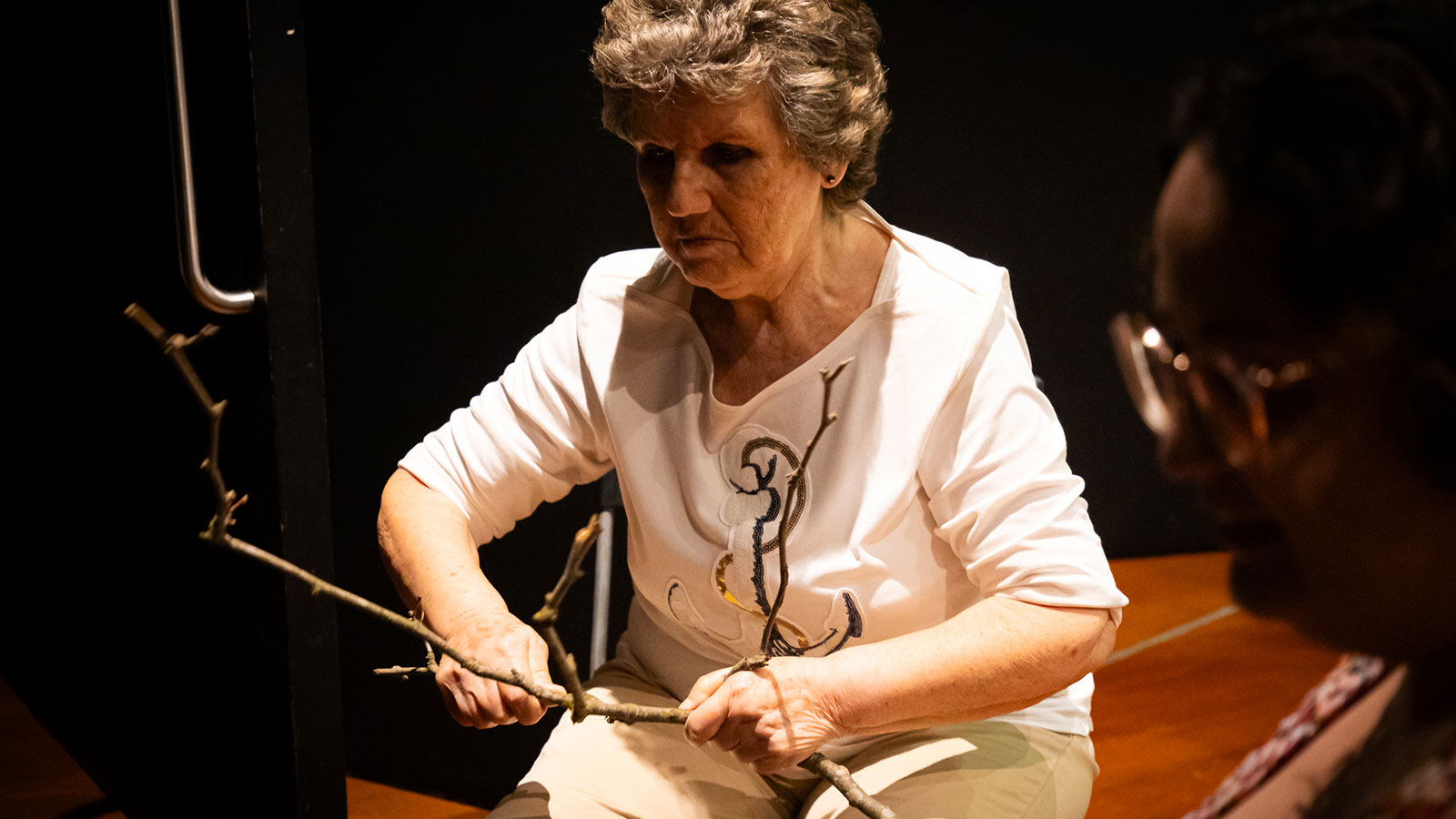
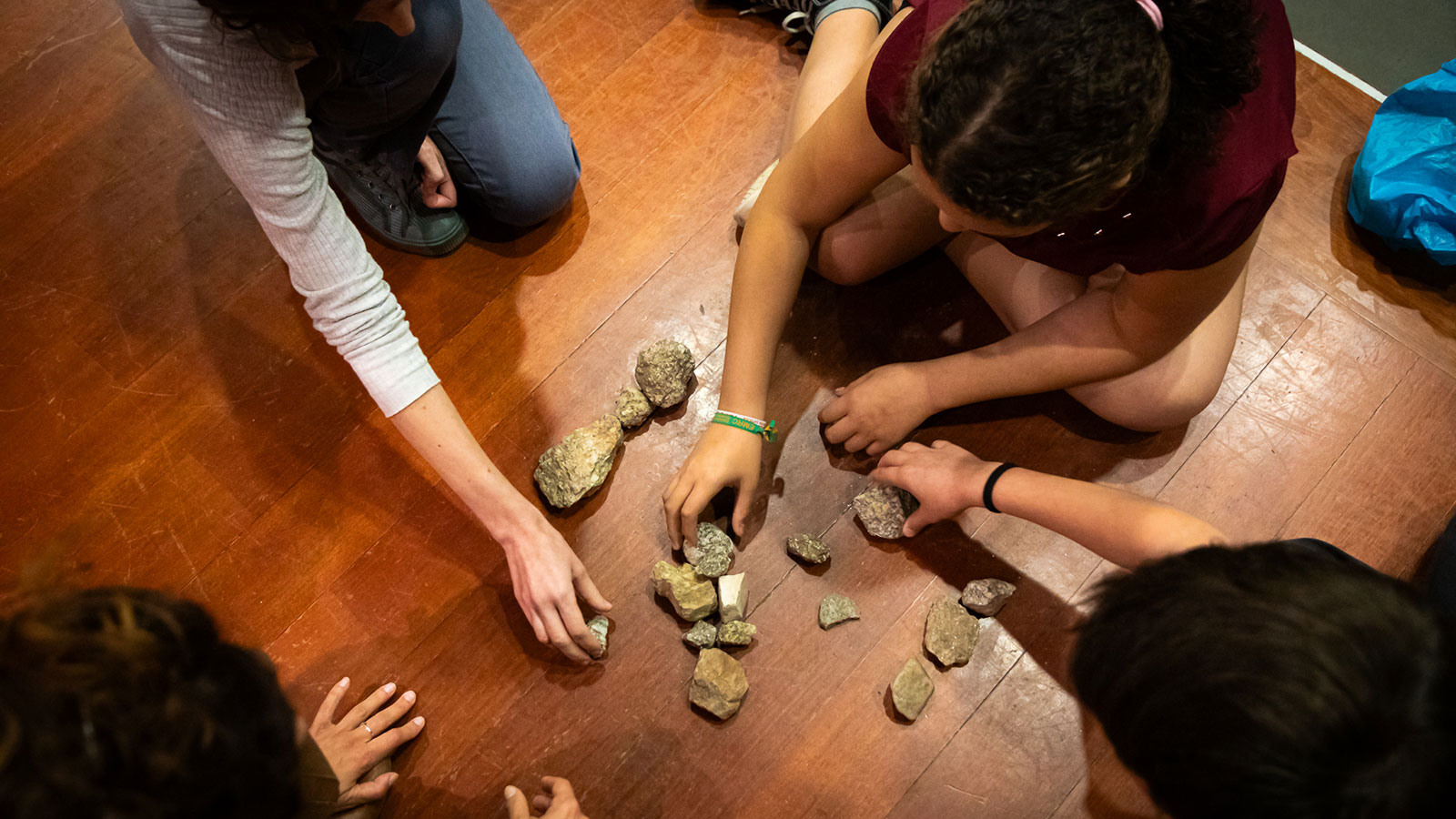
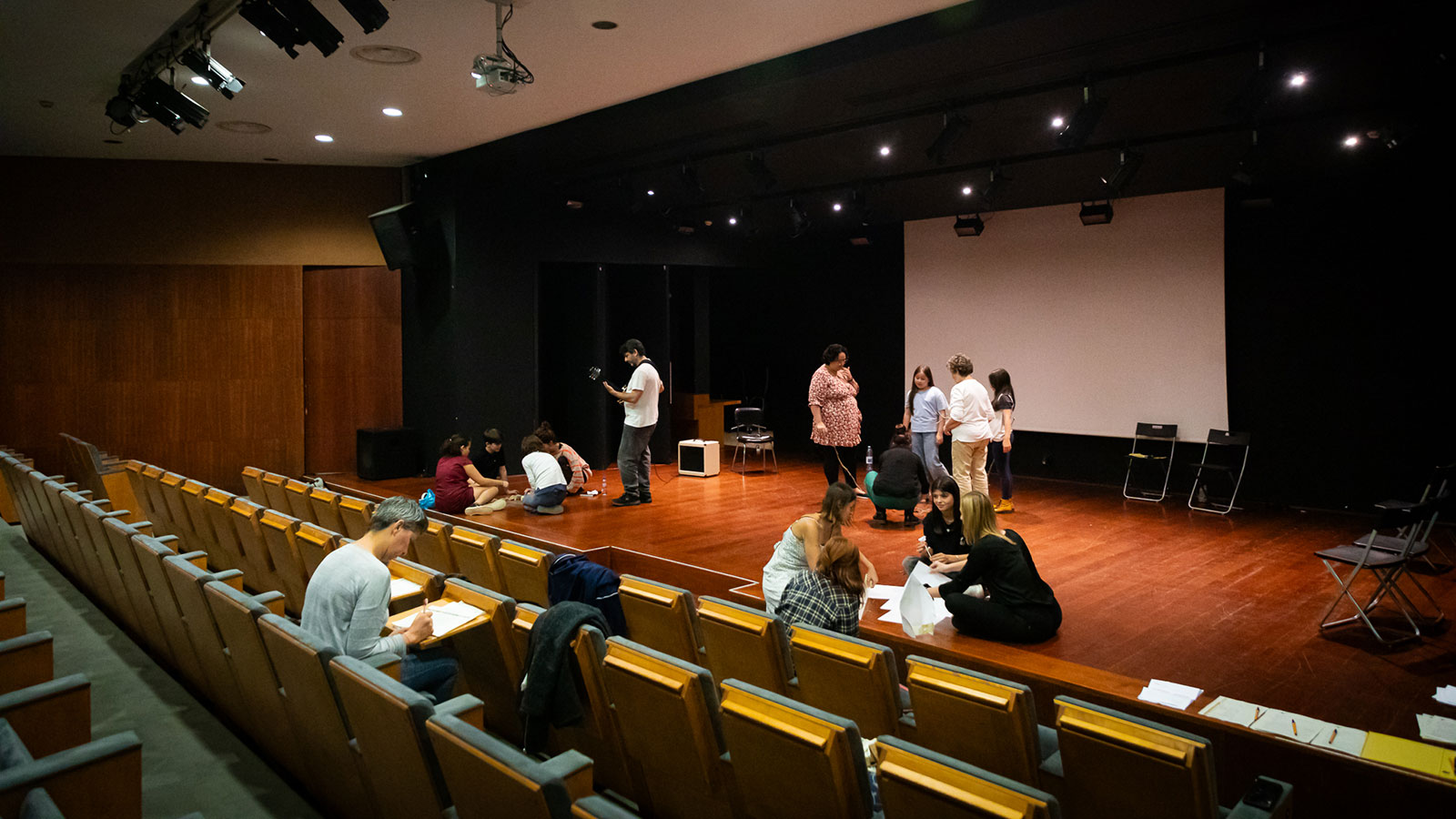
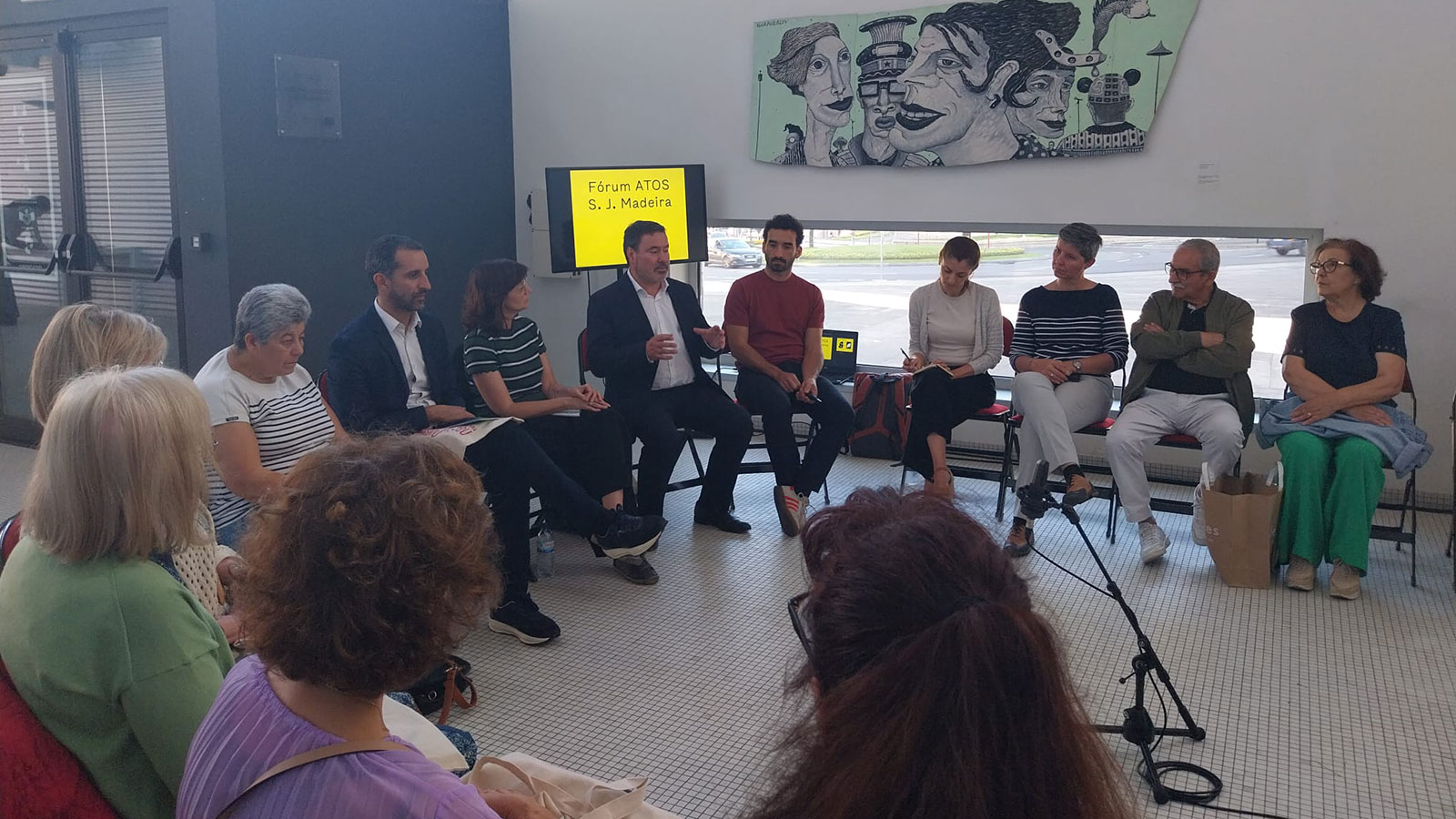
Fostering cultural dialogue in Loulé
The PELE collective has been collaborating with the municipality of Loulé to reflect on cultural participation practices, by activating spaces to bring cultural agents in the area and their communities closer together. In the first few months, the collective held meetings with local associations and already established collectives and created a questionnaire to compile their testimonies. Based on the information obtained, an analysis was made of the wishes and needs of local organisations and the possibilities for joint actions.
Over the summer, the PELE collective organised a laboratory entitled ‘Collective practices of restlessness and transformation’, where around 30 people took part to discuss Loulé’s cultural potential and challenges. From this meeting emerged the group Pessoas Agitadoras da Cultura, which aims to disseminate ideas and practices to strengthen cultural participation methodologies. This was followed by a second meeting dedicated to artistic experimentation and extended to other participants, with the aim of strengthening the group’s identity and mission and defining strategic teams within the scope of local cultural policies.
‘What is within our reach?’, ‘What do we want to do as a group?’ were some of the questions raised. The results of these discussions will guide the collective’s actions in the near future.
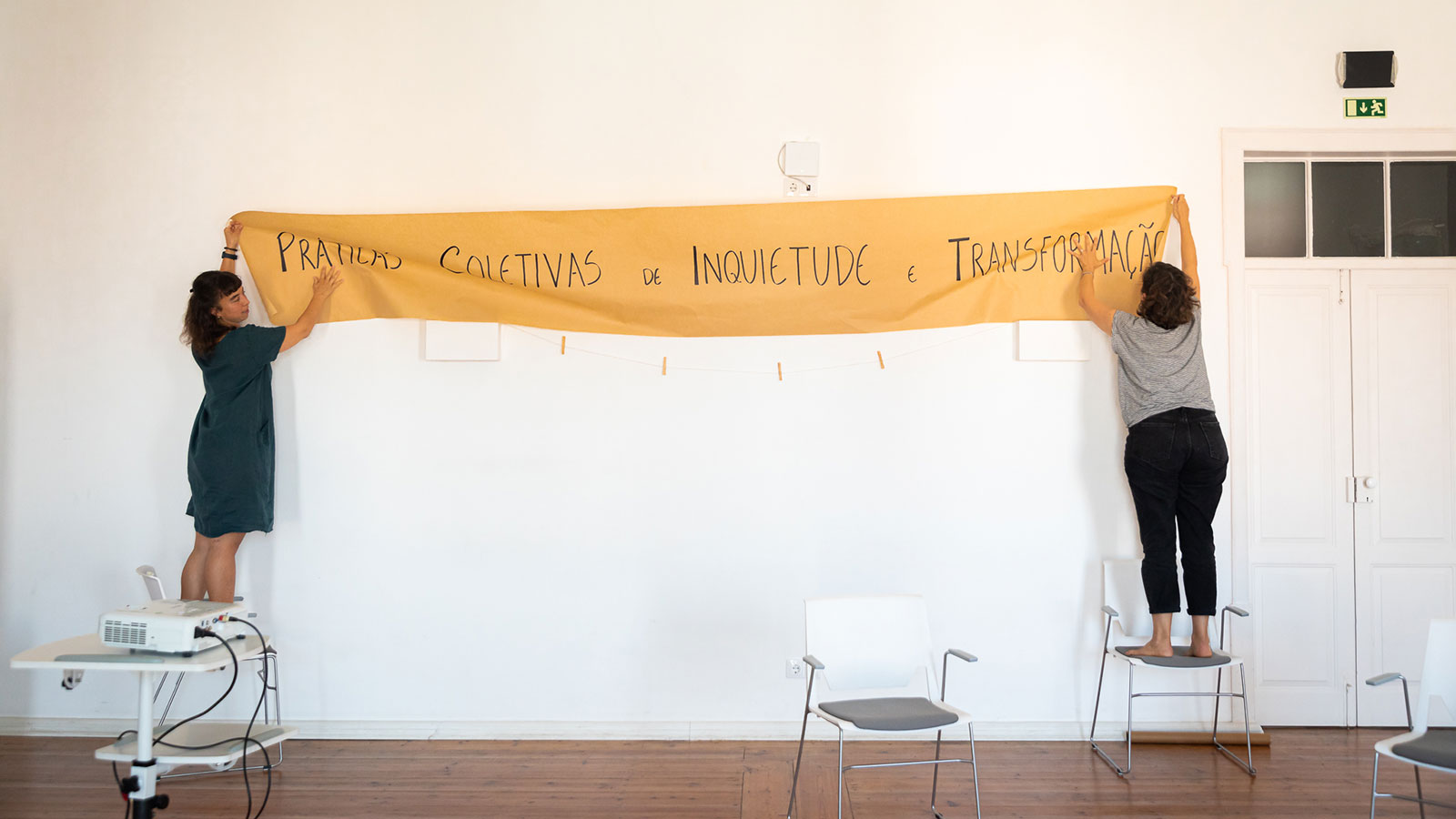
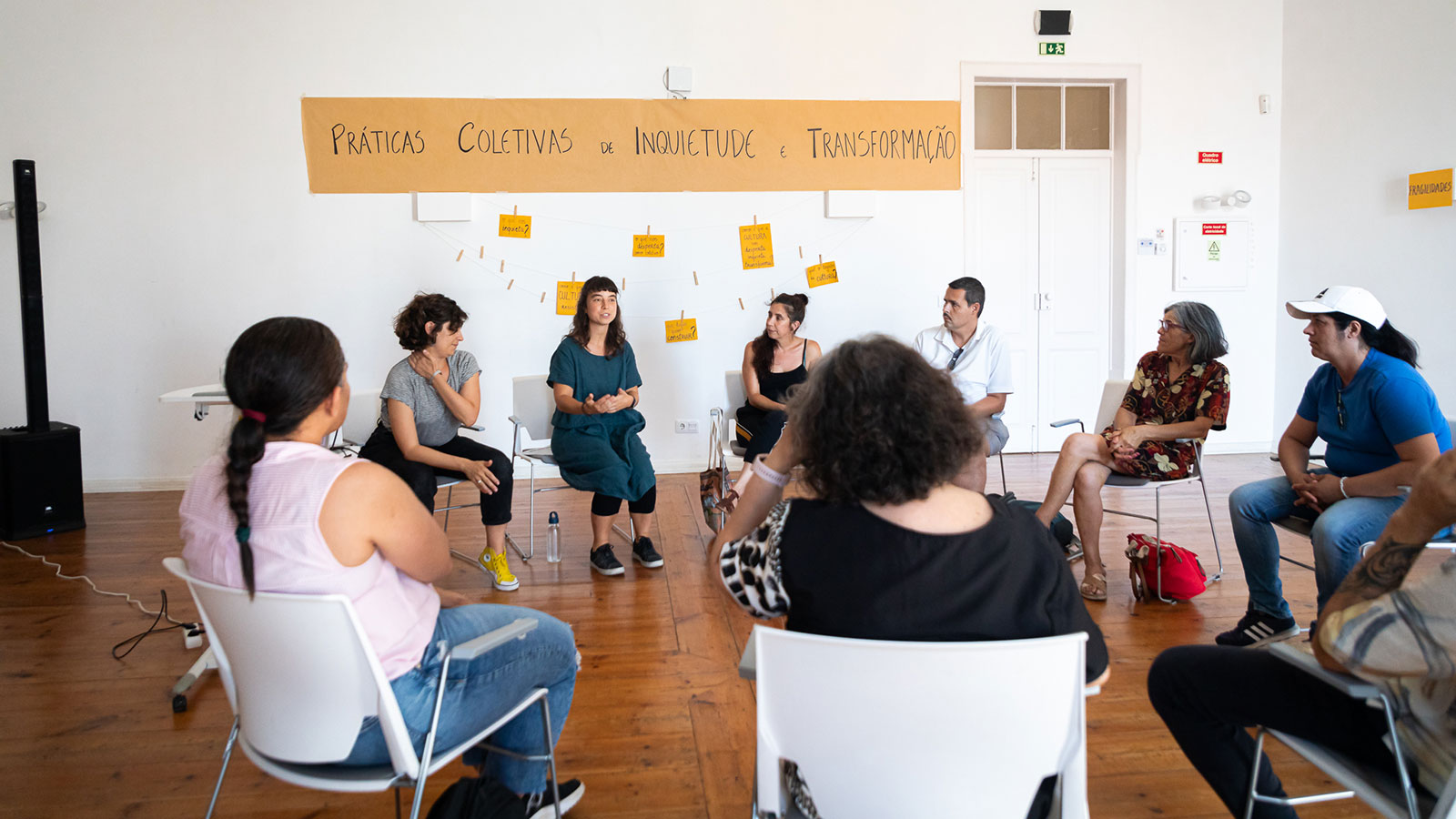
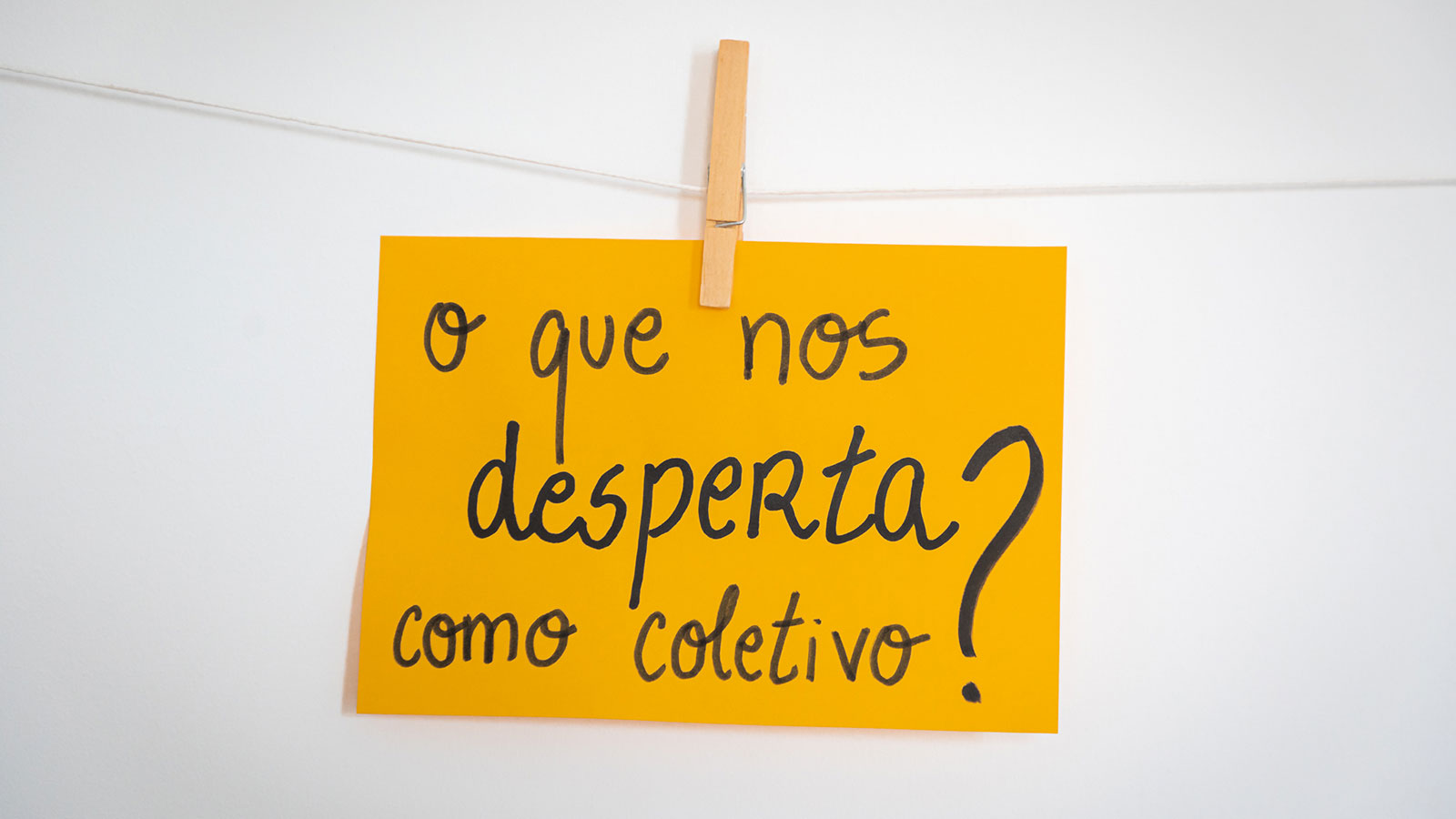
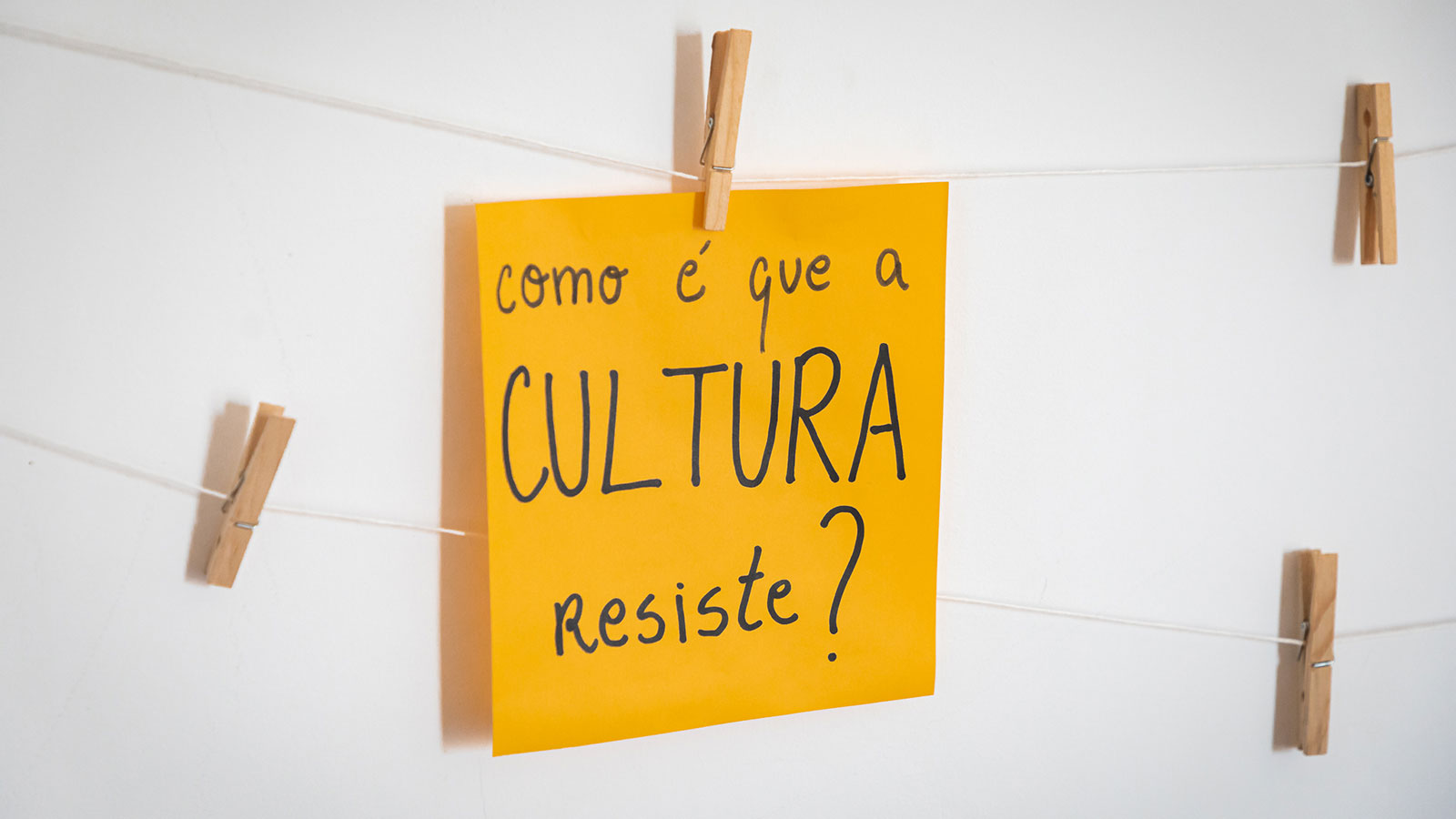


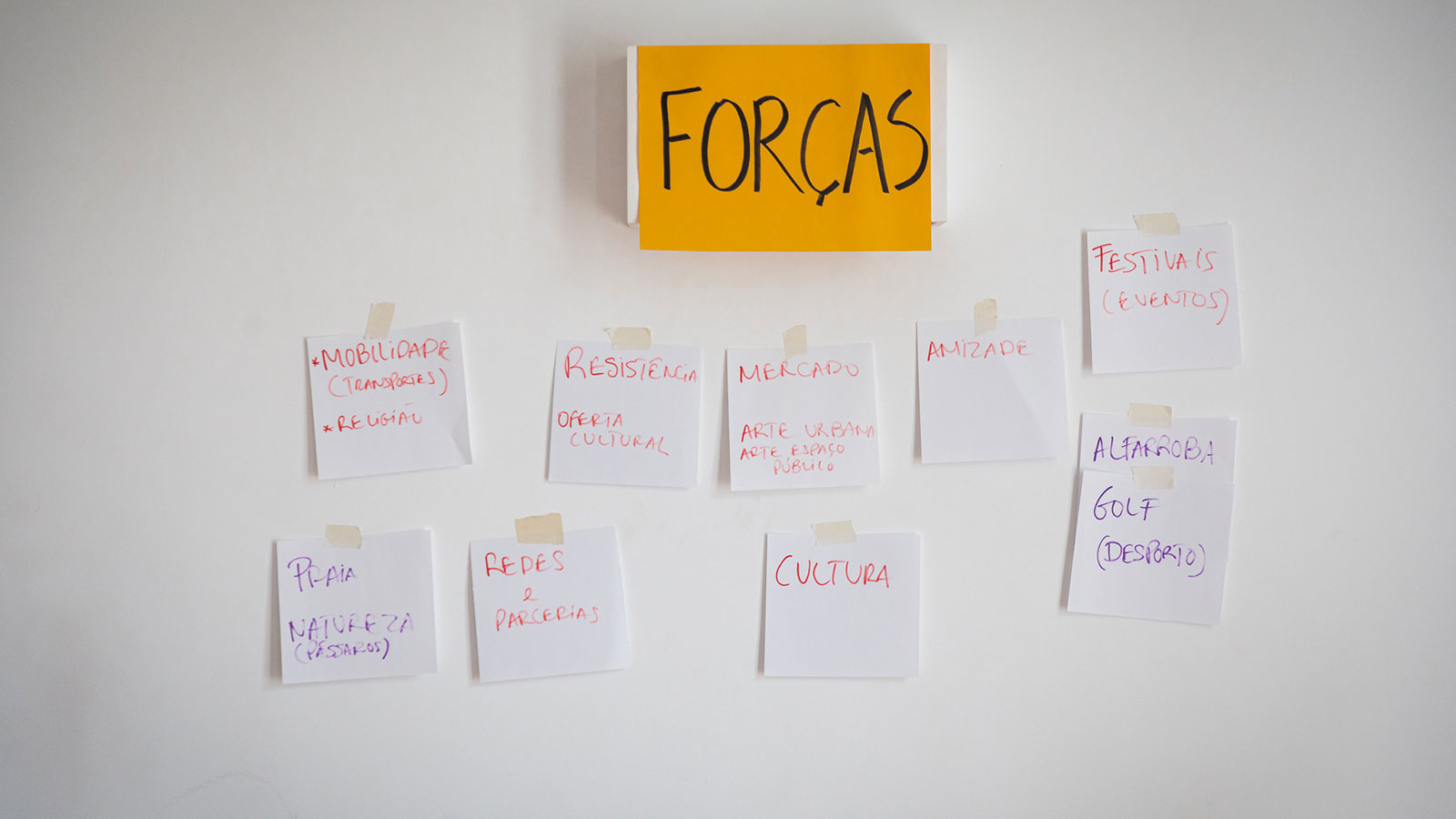
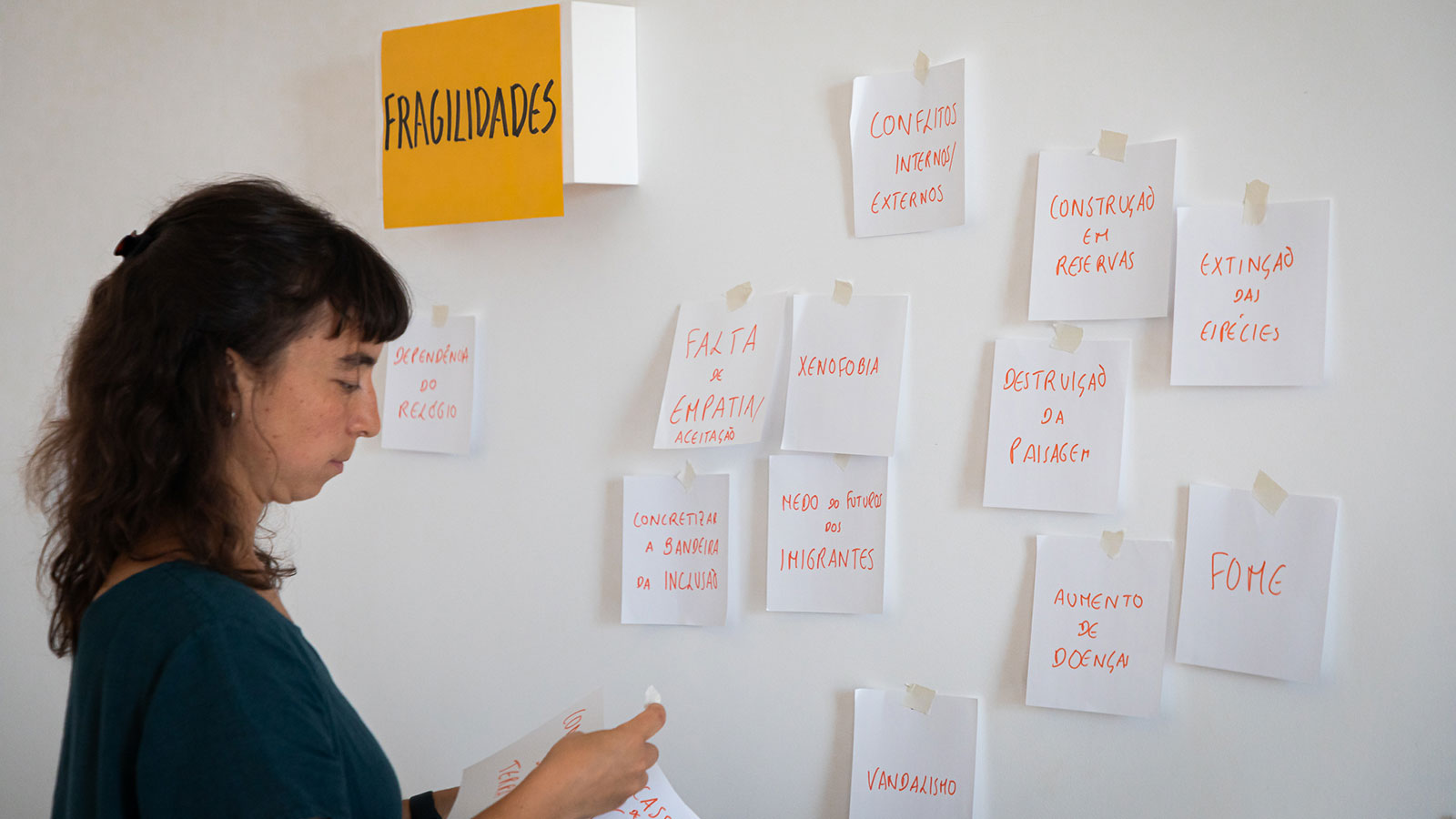
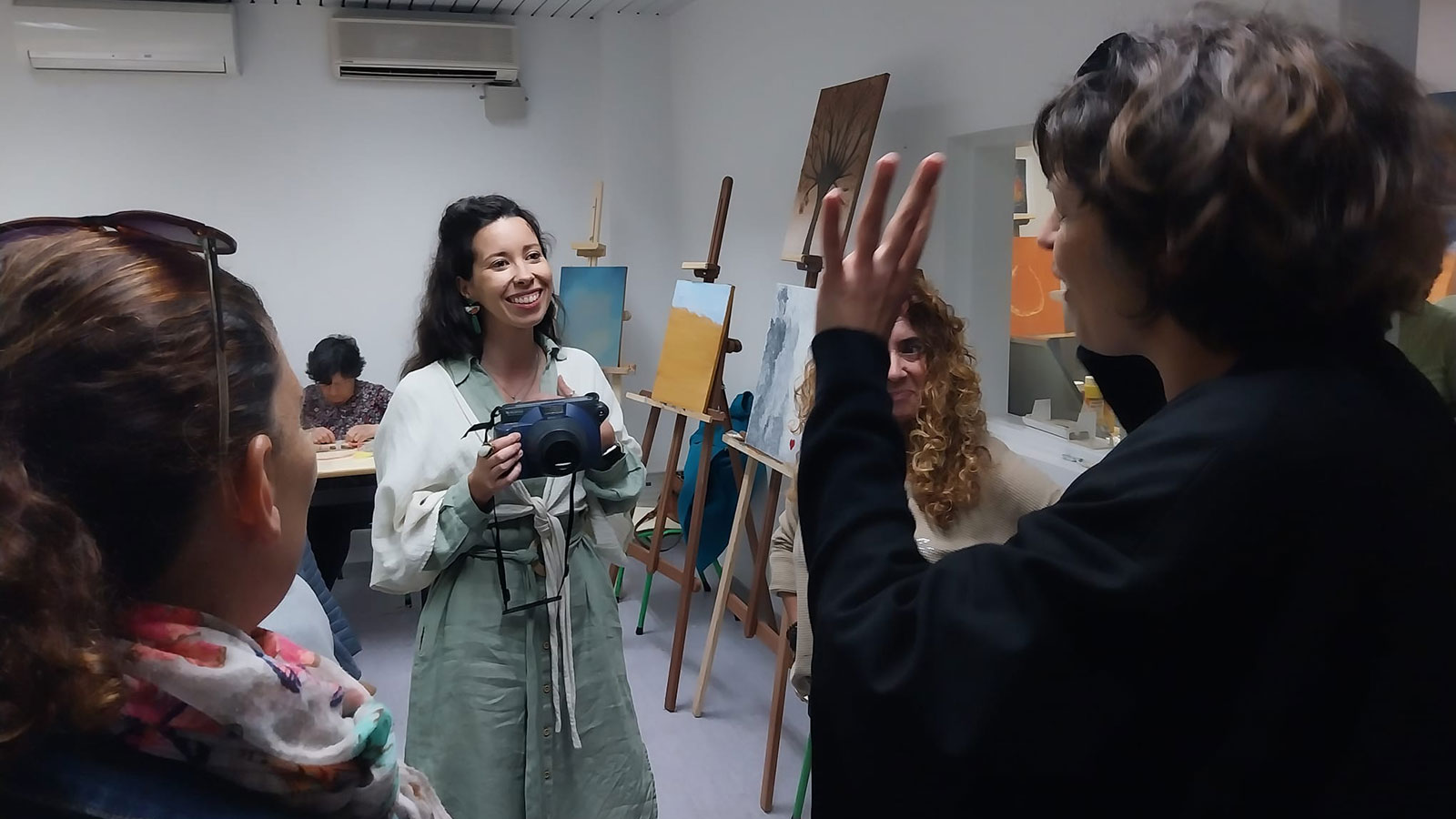
The Atos programme will continue its activities over the coming months, transforming the cultural landscape of the territories through participatory art. On October 18 and 19, the ATOS for Cultural Democracy conference will draw on the programme’s experience to further discuss the role of participatory artistic practices and cultural democracy. The meeting is open to the public and includes an open conference on the 18th and two workshops aimed at participatory arts professionals on the 19th, at the Calouste Gulbenkian Foundation.
More info